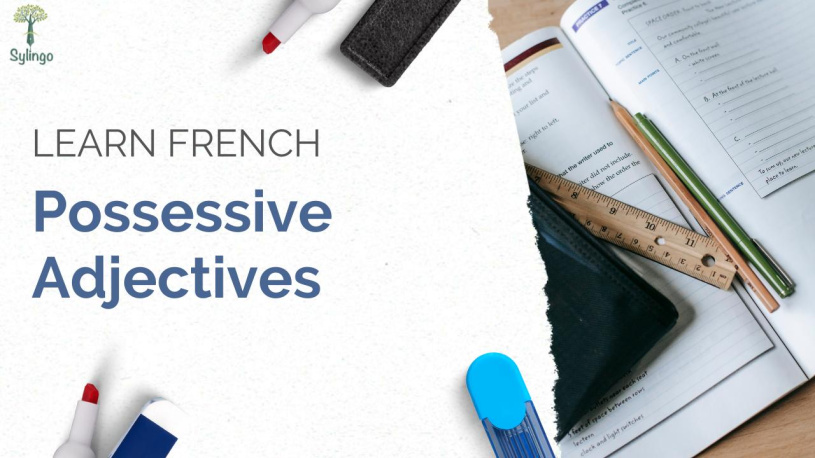In this lesson, we'll delve into possessive adjectives in French. These adjectives are used to indicate ownership or possession and agree in gender and number with the nouns they modify.
1. Understanding Possessive Adjectives:
Possessive adjectives indicate ownership or possession. They agree on gender (masculine/feminine) and number (singular/plural) with the nouns they describe.
| Possessive Adjectives | Personal pronouns | ||
| Pluriel | Féminin | Masculin | |
| mes | ma | mon | Je |
| tes | ta | ton | Tu |
| ses | sa | son | Il / Elle |
| nos | notre | notre | Nous |
| vos | votre | votre | Vous |
| leurs | leur | leur | Ils / Elles |
Practice Sentences:
| C'est mon livre. | This is my book. |
| Voici ta voiture. | Here is your car. |
| Elle aime ses amis. | She loves her friends. |
2. Agreement in Gender and Number:
Possessive adjectives must agree in gender and number with the nouns they modify.
- Masculine singular:
Mon livre (my book) - Feminine singular:
Ma voiture (my car) - Plural:
Mes livres (my books), Mes voitures (my cars)
Practice Sentences:
Voilà mes amis. (Here are my friends.)
Ce sont ses sœurs. (These are her sisters.)
Practice Exercise:
Translate the following sentences into French using possessive adjectives:
- This is my cat.
- Here are your keys.
- She loves her family.
Answers:
- C'est mon chat.
- Voici tes clés.
- Elle aime sa famille.
Possessive adjectives in French indicate ownership or possession and agree in gender and number with the nouns they modify. Practice using them to describe ownership in sentences accurately.






Good